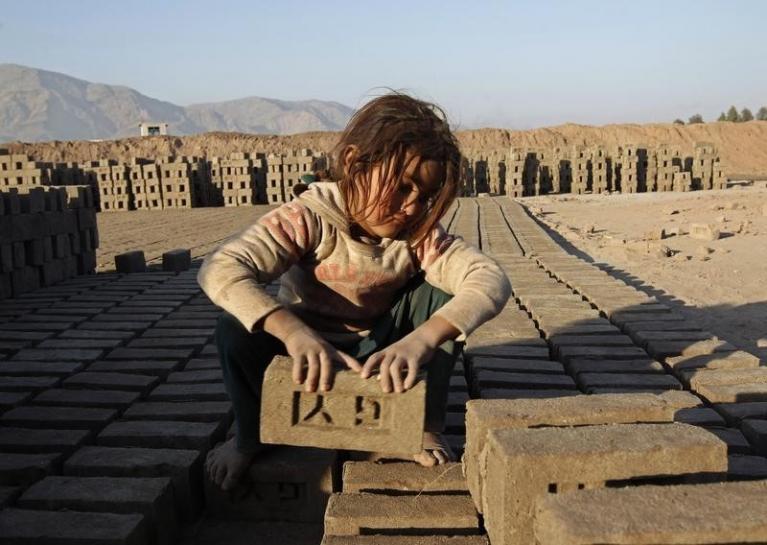
More than 150 million children, or nearly one in 10 globally, are victims of forced labour and progress in reducing that number has slowed, a leading United Nations’ anti-slavery group said on Tuesday.
Nearly half of children in forced labour do hazardous work and more than a third do not go to school, said a report by the UN labour agency, the International Labour Organisation [ILO]. Although the number of child labourers has fallen by 94 million since 2000, the decline slowed from 2012 to 2016, they said.
Activists call for enforcing child labour laws
The faltering progress imperils efforts to end child labour by 2025 as laid out in the United Nations’ latest set of global goals agreed in 2015 to tackle poverty and inequality.
Houtan Homayounpour, technical specialist on forced labour at the Geneva-based ILO, said the world was not on track to end child labour in eight years with estimates that 121 million children would still be in child labour in 2025 at this rate. “We need to pick up the pace,” he told the Thomson Reuters Foundation.
A total of 152 million children - 64 million girls and 88 million boys - are victims of child labor, according to the latest ILO estimate. More than two-thirds of these children are working on a family farm or in a family business with 71 per cent overall employed in agriculture.
Nine out of every 10 live in Africa and the Asia and Pacific region, the ILO said, with sub-Saharan Africa experiencing a rise in child labour from 2012 to 2016.
“Africa, where child labour is highest in both proportionate and absolute terms, and where progress has stalled, remains a particular priority,” the ILO said in its report.
Civil society declares child labour as worst form of slavery
The report noted a strong link between child labour and conflict and disaster which caused joblessness and displacement that make children vulnerable. Among children in forced labour between ages 5 and 14, a third, or 36 million, do not go to school.
The ILO said its findings came from surveying households in all regions of the world and using data from the UN and world governments.
-(1)1717678110-0/Kendrick-(1)-(1)1717678110-0-405x300.webp)






1732445375-0/Untitled-design-(9)1732445375-0-270x192.webp)


1732428810-0/Copy-of-Untitled-(3)1732428810-0-270x192.webp)






COMMENTS (1)
Comments are moderated and generally will be posted if they are on-topic and not abusive.
For more information, please see our Comments FAQ